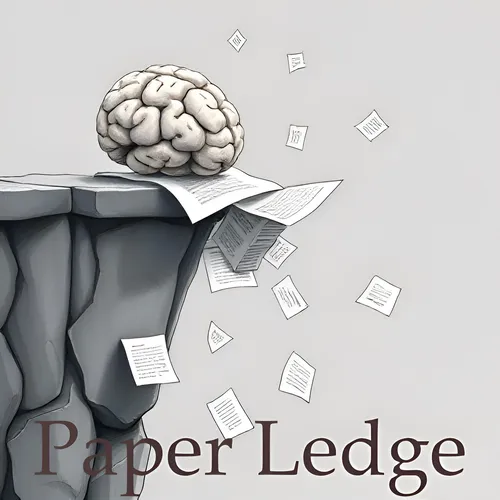Machine Learning - LLM Unlearning using Gradient Ratio-Based Influence Estimation and Noise Injection
- Author
- ernestasposkus
- Published
- Mon 11 Aug 2025
- Episode Link
- https://www.paperledge.com/e/machine-learning-llm-unlearning-using-gradient-ratio-based-influence-estimation-and-noise-injection/
Hey PaperLedge crew, Ernis here, ready to dive into some seriously fascinating research! Today, we're tackling something that's becoming increasingly important in the world of AI: unlearning.
Think of it like this: imagine you accidentally told your friend a really embarrassing secret about someone else. You immediately regret it, right? You wish you could just take those words back, make your friend forget they ever heard it. That's kind of what we're trying to do with AI, specifically with those massive language models like the ones that power chatbots and translation tools.
These models learn by gobbling up tons and tons of data – everything from Wikipedia articles to tweets to books. But what happens when some of that data is, well, problematic? Maybe it's private information that shouldn't have been included, or maybe it's biased or even illegal. We need a way to make the AI "forget" that information.
That's where this paper comes in. The researchers are tackling the challenge of machine unlearning in Large Language Models (LLMs). It's not as simple as just deleting the data! These models store information in a really complex way, spread across millions or even billions of connections (or "parameters") within the model.
The problem with existing methods is that they're like trying to remove a single grain of sand from a giant sandcastle – you might accidentally knock down the whole thing! They often fail to completely erase the unwanted information, or they end up damaging the model's overall ability to do other tasks.
So, what's their solution? They've come up with a system called GRIN, which stands for… well, the acronym isn't as important as what it does! Think of GRIN as a super-precise scalpel for AI. It's designed to target only the specific parts of the model that are responsible for remembering the data we want it to forget.
Here's how it works, in a nutshell:
- First, GRIN uses a clever technique to identify the model's parameters that are most strongly linked to the information we want to erase. It's like tracing the source of a rumor back to the person who started it.
- Then, instead of deleting those parameters, which could cause damage, they inject a tiny bit of "noise" into them. Think of it like planting a seed of doubt in the model's memory.
- Finally, they fine-tune the model, which helps it to reorganize itself and effectively forget the unwanted information, while still retaining its overall knowledge and abilities.
The researchers put GRIN to the test on some standard benchmarks, with names like TOFU, WMDP, and SafePKU. Don't worry about the acronyms! What's important is that these benchmarks are designed to evaluate how well a model can forget specific information without losing its overall performance. And guess what? GRIN did really well!
So, why does this research matter? Well, for starters, it's crucial for building AI systems that are ethical and responsible. It helps us to protect people's privacy, prevent the spread of misinformation, and ensure that AI is used for good. It's also important for companies that are building and deploying these models, as they need to comply with increasingly strict regulations around data privacy and security.
But it's not just about avoiding legal trouble. Imagine a medical AI that was trained on outdated data, or a financial AI that learned biased investment strategies. Being able to "unlearn" and update these models is essential for ensuring that they're accurate, fair, and reliable.
"GRIN offers a promising approach to targeted machine unlearning, paving the way for more responsible and trustworthy AI systems."
Here are a couple of things that really got me thinking while reading this paper:
- How can we ensure that unlearning methods like GRIN are used responsibly and don't inadvertently erase valuable knowledge?
- As LLMs become more and more complex, how do we scale unlearning techniques to handle even larger and more intricate models?
What do you think, PaperLedge crew? Is machine unlearning the future of responsible AI? Let me know your thoughts in the comments!
Credit to Paper authors: Ameya Anjarlekar, Sandeep Pombra
